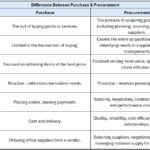In the bustling world of manufacturing, where every second counts and efficiency is paramount, there exists a role that often goes unnoticed and unappreciated: the Quality Assurance (QA) professional. Despite their pivotal role in ensuring the safety, reliability, and performance of products, these unsung heroes frequently find their efforts overlooked. This article aims to shed light on why quality is a thankless job in most manufacturing plants and how the critical contributions of QA professionals often go unrecognized.
The Invisible Guardians of Quality
Quality Assurance professionals are the invisible guardians of the manufacturing process. They work diligently behind the scenes to ensure that every product meets the necessary standards and specifications before it reaches the customer. Their responsibilities include inspecting raw materials, monitoring production processes, testing finished products, and identifying any deviations from quality standards.
Despite their crucial role, QA professionals rarely receive the recognition they deserve. In many plants, the focus is on production speed and output volume, often at the expense of quality. When things go wrong, QA is the first to be blamed, but when everything runs smoothly, their contributions are easily forgotten.
The Misconception of Quality as a Cost Center
One of the primary reasons quality jobs are overlooked is the misconception that quality assurance is a cost center rather than a value-adding function. Many manufacturing plants view QA as an overhead expense that does not directly contribute to revenue generation. This narrow perspective fails to recognize the long-term benefits of quality assurance, such as customer satisfaction, brand reputation, and reduced costs from rework and recalls.
Investing in quality assurance can lead to significant cost savings by preventing defects and ensuring that products meet customer expectations. However, these benefits are often intangible and difficult to quantify, making it challenging for QA professionals to justify their importance in the eyes of management.
The Pressure of Production Targets
Manufacturing plants operate in highly competitive environments where meeting production targets is critical to maintaining profitability. This pressure to produce more, faster, and cheaper can lead to a culture that prioritizes quantity over quality. In such environments, QA professionals often face resistance when they attempt to enforce quality standards that may slow down production or increase costs.
The relentless focus on meeting production targets can also result in a lack of appreciation for the meticulous work that QA professionals do. Their efforts to catch defects, ensure compliance with regulations, and maintain product consistency are often seen as obstacles to productivity rather than essential components of the manufacturing process.
The Human Element of Quality Assurance
Quality assurance is not just about inspecting products and processes; it also involves working closely with production teams to implement quality improvements and foster a culture of continuous improvement. This human element of QA requires strong communication and collaboration skills, as well as the ability to navigate complex interpersonal dynamics.
Unfortunately, the human aspect of quality assurance is often undervalued. QA professionals frequently find themselves in adversarial positions, having to convince production teams and management of the importance of quality. This can lead to strained relationships and a lack of support for quality initiatives.
The Emotional Toll of a Thankless Job
The thankless nature of quality jobs can take a significant emotional toll on QA professionals. Constantly facing criticism and blame, while rarely receiving recognition for their hard work, can lead to feelings of frustration, burnout, and low morale. This emotional strain can affect not only their job performance but also their overall well-being.
It is essential for manufacturing plants to acknowledge the emotional challenges faced by QA professionals and provide them with the support and recognition they deserve. This can include celebrating quality successes, providing opportunities for professional development, and fostering a culture that values and respects the contributions of QA teams.
Strategies for Recognizing and Valuing Quality Work
To address the issue of quality being a thankless job, manufacturing plants need to adopt strategies that recognize and value the contributions of QA professionals. Here are some practical steps that can be taken:
1. Promote a Culture of Quality
Creating a culture that prioritizes quality is essential for recognizing the contributions of QA professionals. This involves educating all employees about the importance of quality and how it impacts the overall success of the organization. Management should lead by example, demonstrating a commitment to quality in their actions and decisions.
2. Integrate Quality Metrics into Performance Reviews
Incorporating quality metrics into performance reviews can help ensure that QA professionals receive recognition for their work. This can include metrics such as defect rates, customer complaints, and compliance with quality standards. By linking these metrics to performance evaluations and rewards, organizations can incentivize quality improvement efforts.
3. Celebrate Quality Achievements
Regularly celebrating quality achievements can boost morale and demonstrate that the organization values the work of QA professionals. This can be done through awards, recognition programs, and public acknowledgments of quality successes. Highlighting the positive impact of quality improvements on the organization can help shift the perception of QA as a cost center.
4. Provide Opportunities for Professional Development
Investing in the professional development of QA professionals can help them feel valued and supported. This can include offering training programs, certifications, and opportunities for career advancement. Encouraging continuous learning and development can also enhance the skills and knowledge of QA teams, further benefiting the organization.
5. Foster Collaboration and Communication
Promoting collaboration and communication between QA professionals and other departments can help break down silos and build mutual respect. This can be achieved through cross-functional teams, regular meetings, and open lines of communication. Encouraging a collaborative approach to problem-solving can also help integrate quality into the overall manufacturing process.
6. Provide Emotional Support
Recognizing the emotional challenges faced by QA professionals is crucial for maintaining their well-being. Organizations should provide resources for stress management, mental health support, and work-life balance. Creating a supportive work environment where QA professionals feel valued and respected can help mitigate the emotional toll of their job.
The Long-Term Benefits of Valuing Quality
Recognizing and valuing the work of QA professionals can have significant long-term benefits for manufacturing plants. By prioritizing quality, organizations can improve customer satisfaction, enhance brand reputation, and reduce costs associated with defects and recalls. Additionally, a culture that values quality can lead to higher employee morale, increased job satisfaction, and lower turnover rates.
In an industry where the margins for error are slim, the contributions of QA professionals are indispensable. Their work ensures that products are safe, reliable, and meet customer expectations. By acknowledging and appreciating their efforts, manufacturing plants can create a more positive and productive work environment that benefits everyone.
Conclusion
Quality assurance is a thankless job in many manufacturing plants, often overlooked and undervalued despite its critical importance. The misconception of QA as a cost center, the pressure of production targets, and the emotional toll of the job all contribute to this issue. However, by promoting a culture of quality, integrating quality metrics into performance reviews, celebrating achievements, providing professional development opportunities, fostering collaboration, and offering emotional support, organizations can recognize and value the contributions of QA professionals.
In the end, investing in quality assurance is not just about preventing defects; it is about building a sustainable and successful organization. The efforts of QA professionals are the foundation upon which manufacturing excellence is built. It is time to shine a light on their invaluable contributions and give them the recognition they truly deserve.
Check out similar Articles:
- Top 15 MNCs Every Mechanical Engineer Dreams of Joining in 2025

- How to Digitize and Automate the CAPA Process

- Top 10 Essential Tools Every Mechanical Engineer Should Know

- What is GD&T (Geometric Dimensioning & Tolerancing) ?

- Principles of IATF 16949: A Guide to Quality Management

- The Evolution of IATF 16949: The Automotive Quality Standard

- Top Interview Questions Related to SPC ,Cp and Cpk

- Difference Between Purchase and Procurement

- Master Your Job Interview: Top 70 Common Interview Questions and Answers




